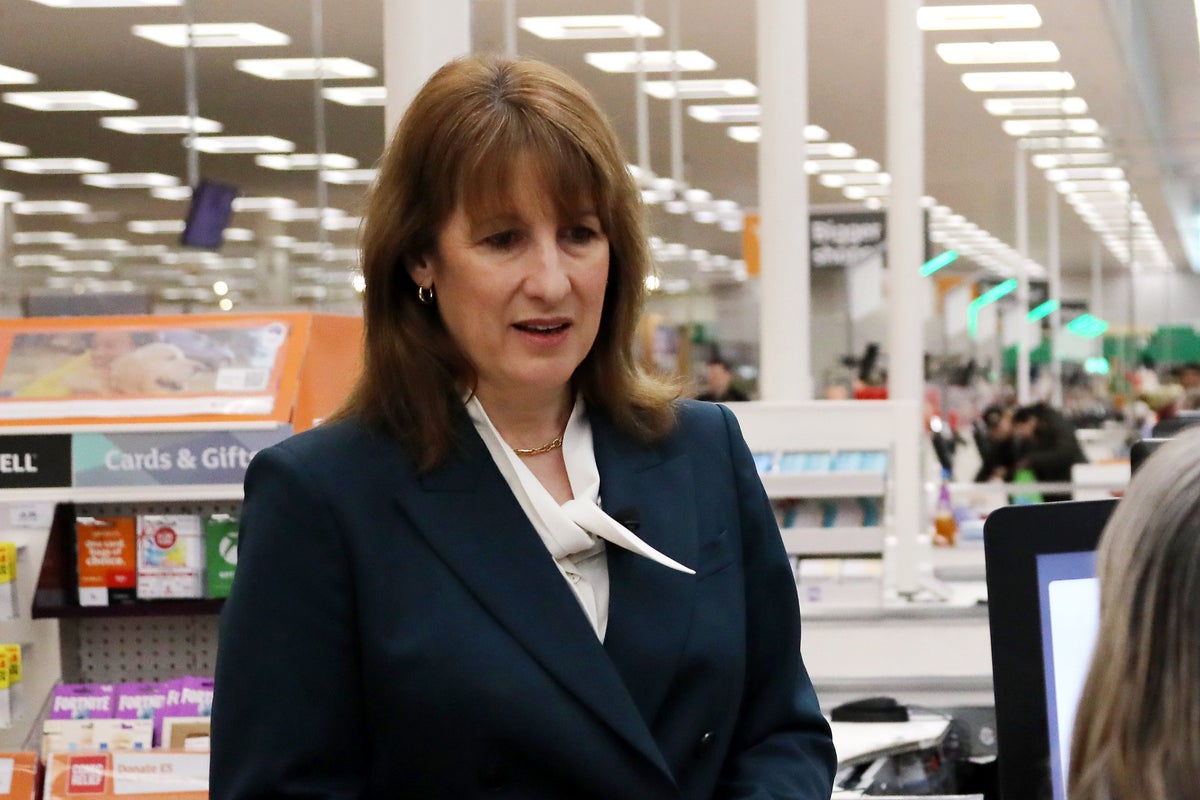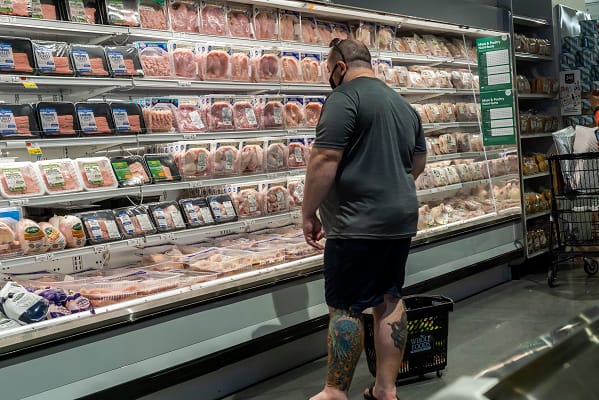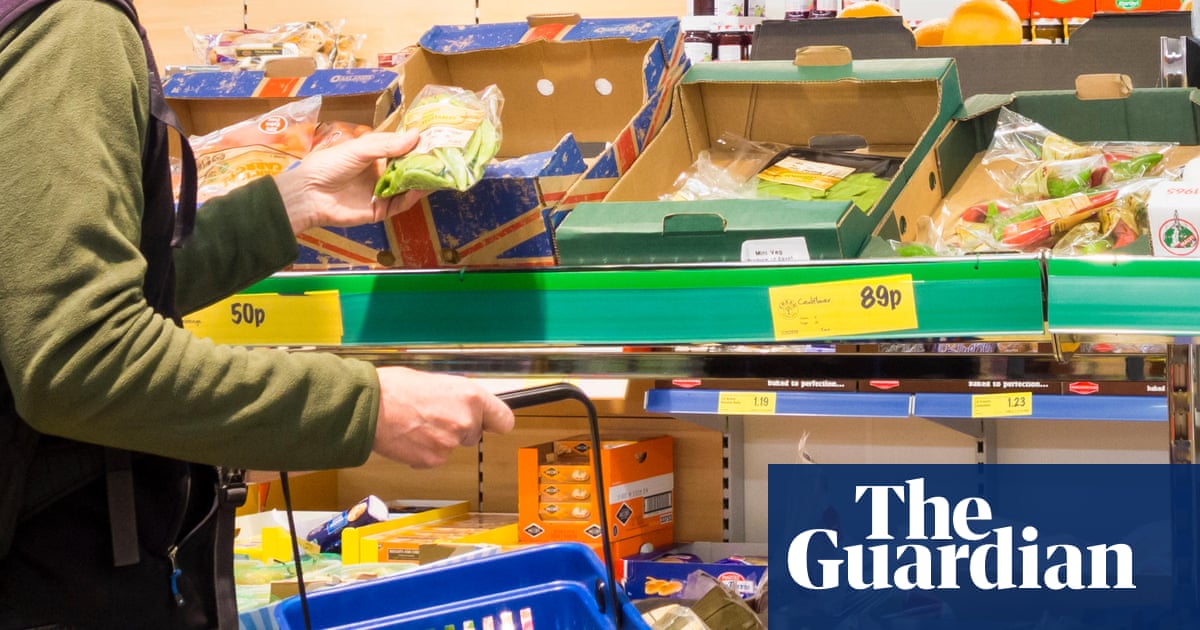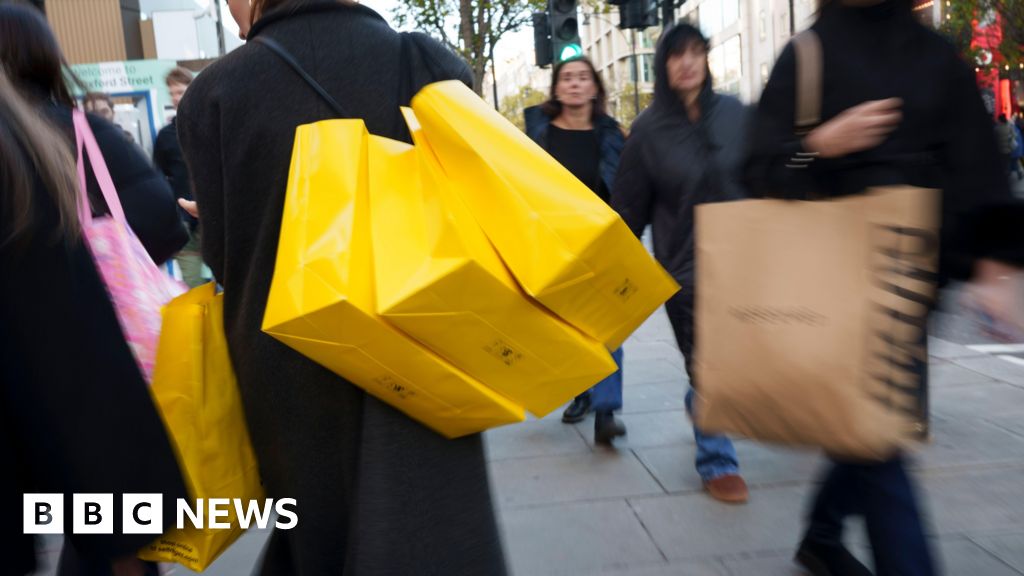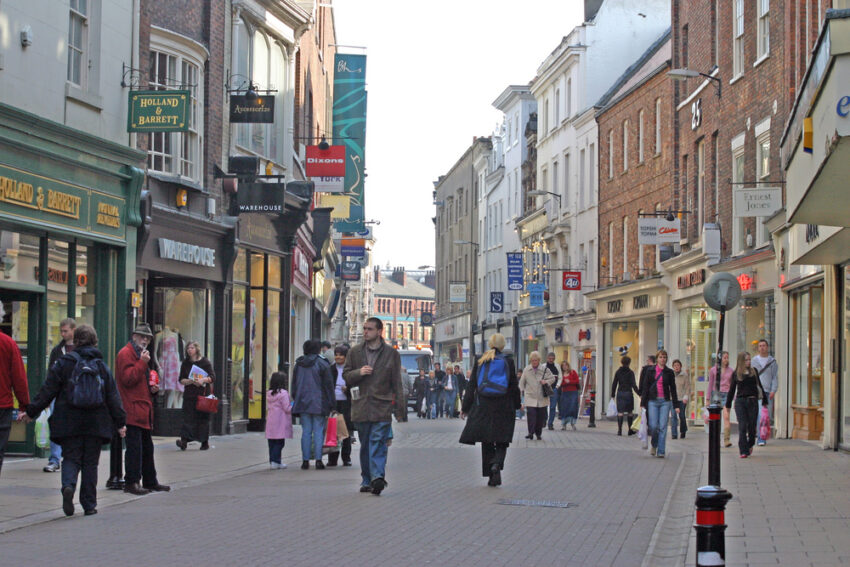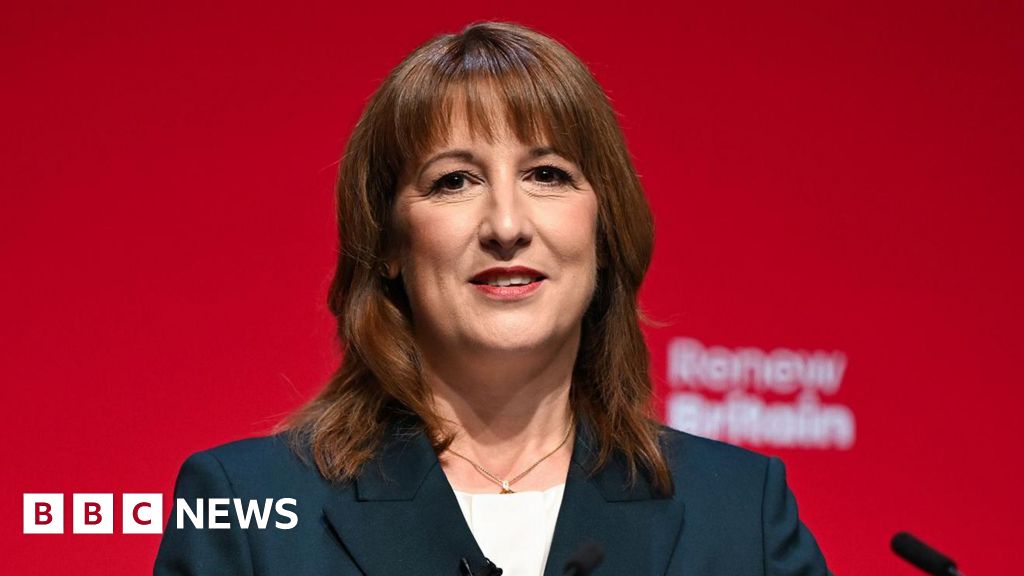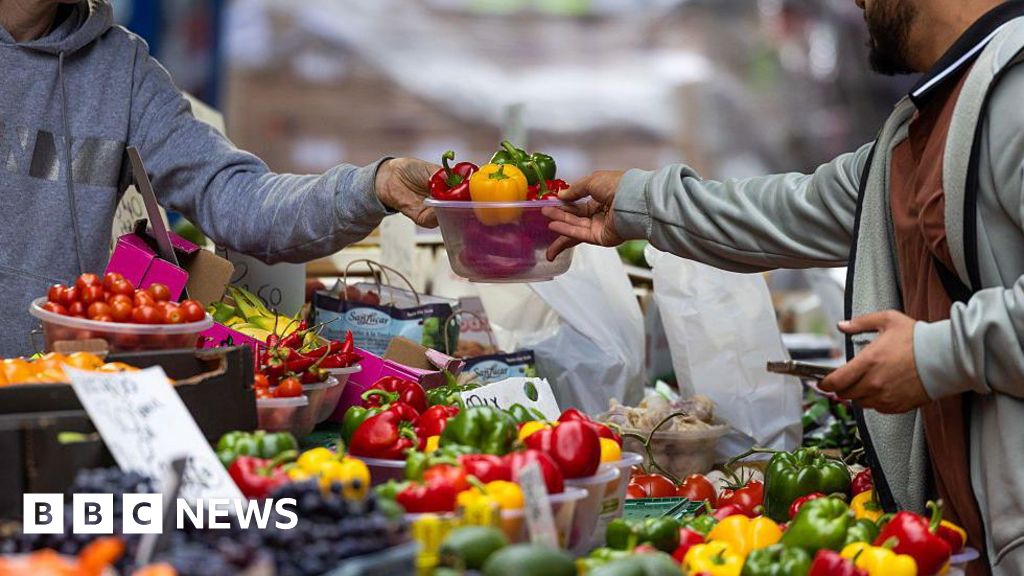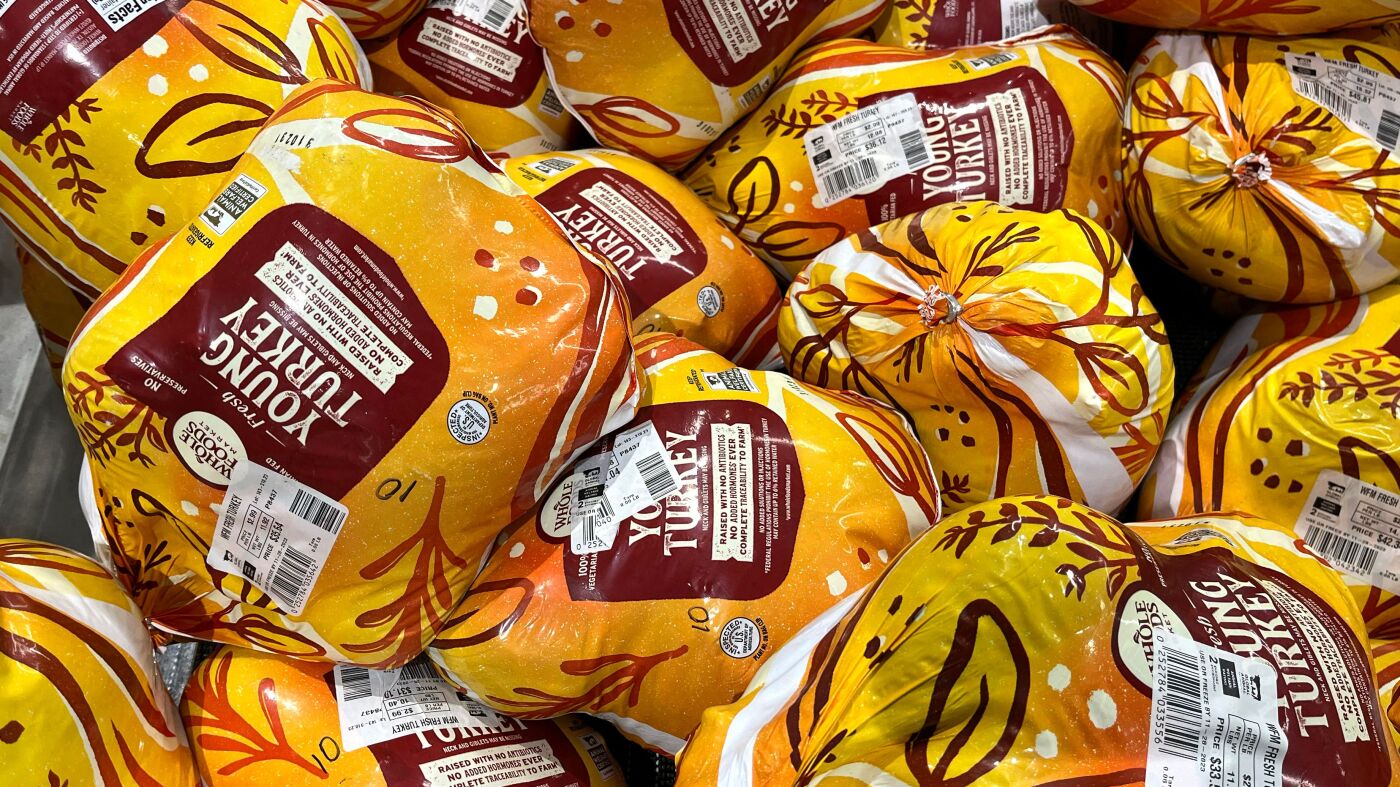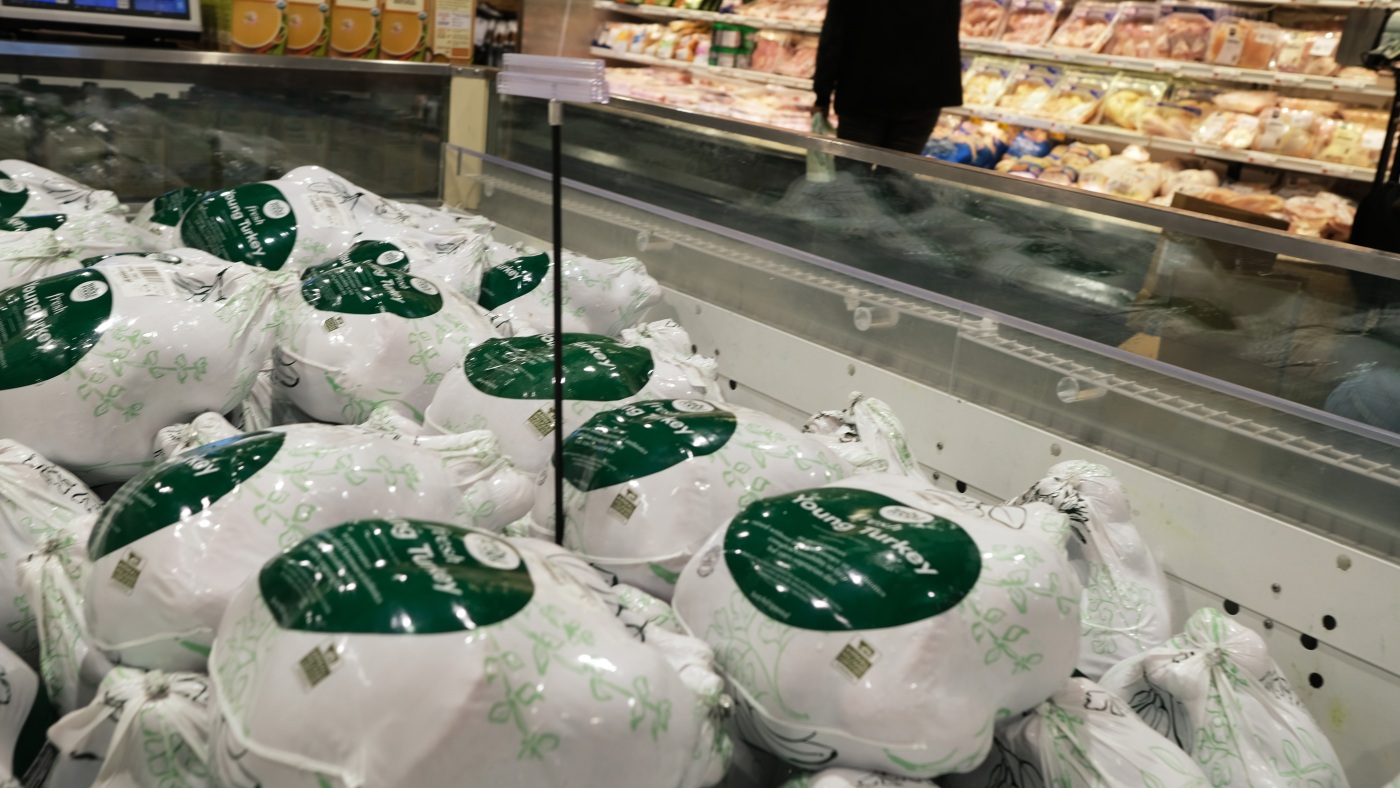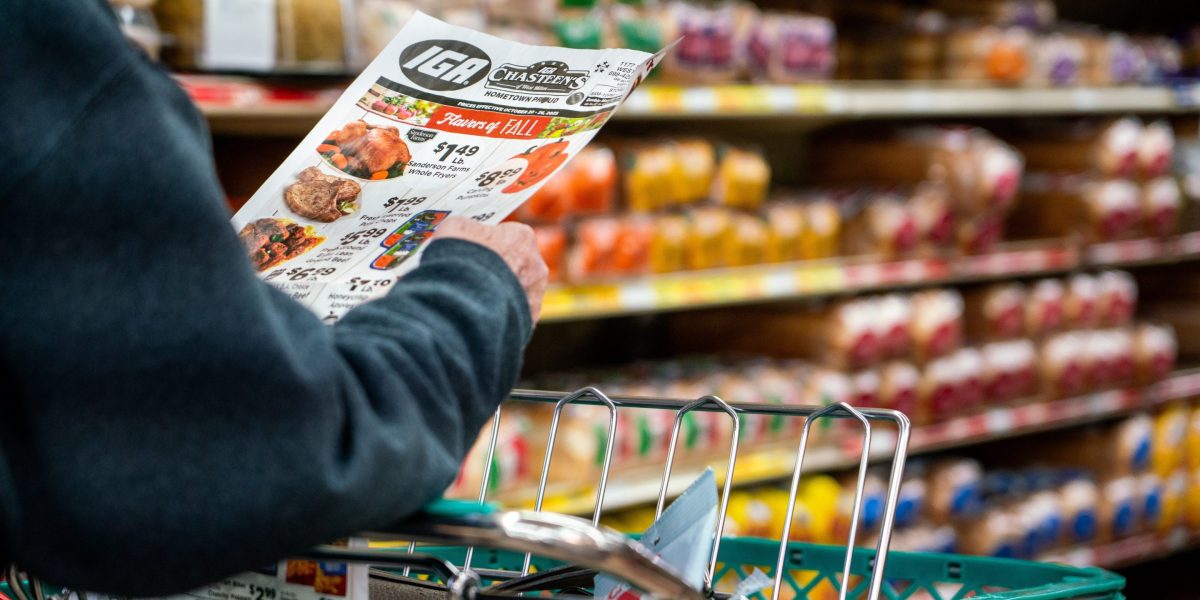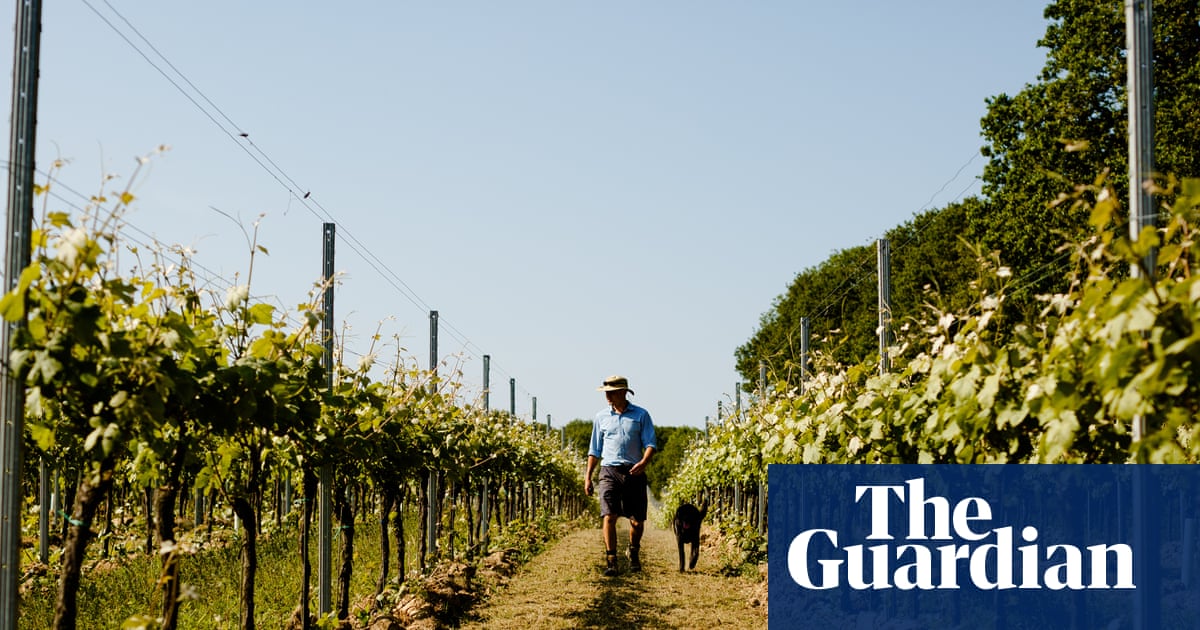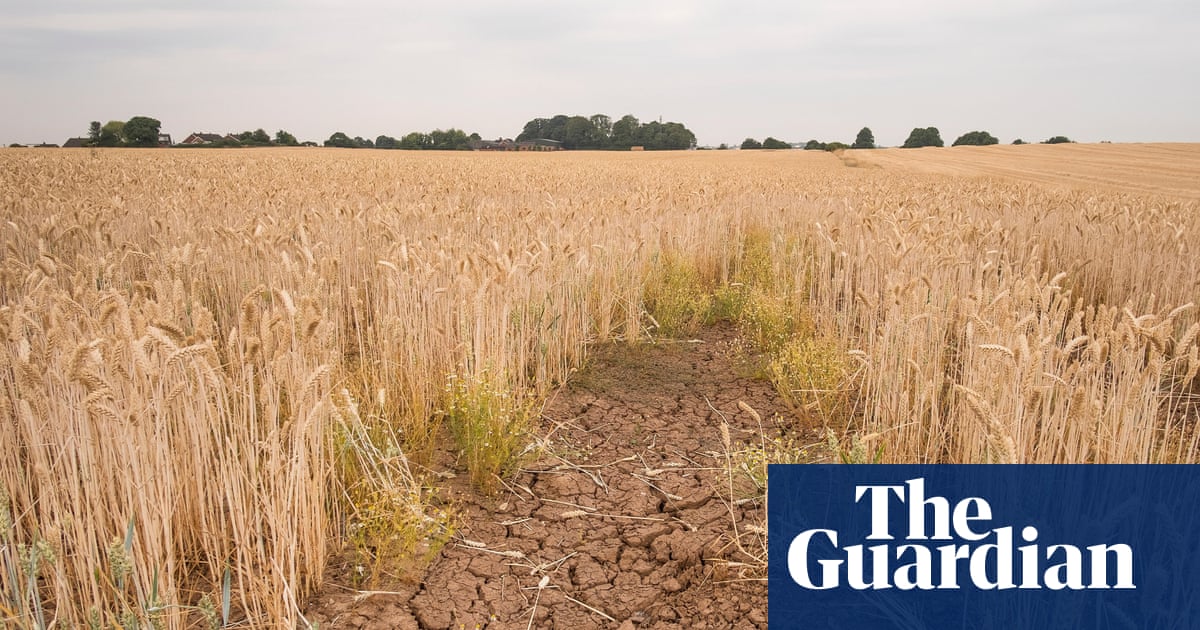#food-prices
#food-prices
[ follow ]
#inflation #tariffs #uk-inflation #cost-of-living #energy-prices #interest-rates #consumer-price-index #cpi
Food & drink
fromThe Mercury News
2 days agoIs takeout dying? The middle ground between the cost of eating out and cooking is disappearing
Rising food prices have turned affordable mid-priced dinners into a financial strain, forcing households to choose between labor-intensive home cooking and costly dining out.
Food & drink
fromLondon Business News | Londonlovesbusiness.com
3 days agoRetailers warn of possible fruit and veg shortages - London Business News | Londonlovesbusiness.com
UK fruit and vegetable supplies face temporary shortages and price rises due to transport delays, rising costs, and extreme weather affecting imports.
fromwww.thelocal.at
3 weeks agoWhat Austria's new lower VAT on food could mean for your shopping bill
Austria's government has agreed on a list of everyday foods that will be taxed at a lower VAT rate from July, in a move it said should reduce prices for households and slightly dampen inflation. According to ORF, the Council of Ministers approved the product range on Wednesday after intensive discussions. The reduced VAT rate of 4.9 percent, down from ten percent, is set to apply from July 1st. The government also set an upper cost limit of 400 million for the measure, ORF reported.
Miscellaneous
fromwww.theguardian.com
1 month agoThe Guardian view on food security: Britain can no longer trust markets alone | Editorial
Food policy across much of the world is changing. But not in Britain. That may be a costly mistake as the prices of essentials rise because of the climate emergency, geopolitical tensions and the fragility of just-in-time supply chains. Many capitals are now reviving their strategic food reserves. European nations such as Sweden, Finland, Norway and Germany are rebuilding stocks dismantled after the cold war.
Food & drink
fromFast Company
1 month agoNational Pizza Week is here - here's where to save on pizza
There are many made-up celebrations these days, but at least National Pizza Week delivers something tasty. Coming in hot on the heels of so-called quitter's day, when many people abandon their New Year's resolutions, pizza shops around the U.S. will be tossing around some deals that could save customers some dough. Of course, many people don't need an excuse to eat pizza-on any given day, about 11% of Americans do so, according to a study released in 2024 by the U.S. Department of Agriculture.
Food & drink
fromwww.cbc.ca
1 month agoAppetite for a bargain: Rising food costs fuel boom in discount grocery stores | CBC Radio
With the cost of living soaring, Ron Robinson is determined to save wherever he can starting with his grocery bill. It's why the Montreal man shops at Liquidation Marie, an ultra discount grocery chain where prices can be as much as 50 per cent less than a regular grocery store. He recalls purchasing steaks for about six dollars each. "If you go to a big box store, you're going to pay maybe $20, $25 for a pack of three," Robinson told Cost of Living.
Canada news
Agriculture
fromFortune
2 months ago'People are completely worried': In a Nebraska town where one in three work at Tyson, a plant closure threatens everything | Fortune
Tyson's closure of the Lexington beef plant will devastate the town, cut national processing capacity, and pressure beef prices and rancher incomes.
fromTasting Table
3 months agoWhy Five Guys Is So Expensive Compared To Other Burger Chains - Tasting Table
When the craving for a burger and fries strikes, you don't want to wait around for something fancy and over-the-top. You want it hot and delicious, you want it now, and you want it for a reasonable price. Fast food burger chains have typically delivered on this, but in recent years, getting that reliable burger on the cheap has been harder to come by. Five Guys specifically has been called out for this repeatedly, especially after a picture of a receipt showing the cost of a bacon cheeseburger ($12.49), small fries ($5.19), and a soda ($2.89) for one person went viral on social media, which with sales tax included came in at a pricey $21.91.
Food & drink
fromwww.mediaite.com
3 months agoTACO! Trump Reportedly Preparing Big Tariff Reductions as Part of Affordability Push
President Donald Trump is reportedly considering a major rollback of his trade policy. According to The New York Times Maggie Haberman and Tyler Pager, his administration is preparing broad exemptions to certain tariffs in an effort to ease elevated food prices that have provoked anxiety for American consumers, according to three people briefed on the actions. They continued: The change would apply to certain reciprocal tariffs the president announced in April,
US politics
fromTasting Table
3 months agoWhy You Should Avoid Ordering Chipotle Guacamole To-Go - Tasting Table
Rather than waste your extra dollars on a disappointing takeout dip, you're much better off choosing from a number of store-bought guacamole brands or making your own at home. Comparing prices, adding guacamole to your burrito or bowl order can cost around $3, the same price for approximately 4 fluid ounces of guacamole when ordered as a side on its own. The price for a large 8-ounce side of guacamole is nearly $9.
Food & drink
UK news
fromLondon Business News | Londonlovesbusiness.com
3 months agoSweet relief as prices fall in time for Halloween - London Business News | Londonlovesbusiness.com
Shop price inflation slowed to 1.0% year‑on‑year in early October, driven by retailer discounting while food inflation eased to 3.7% overall.
fromBuzzFeed
3 months agoPeople Have No Sympathy For This Trump Voter Who Keeps Tweeting About The Cost Of Groceries
A week before Trump's second term began, someone posted a video of moving trucks at the White House with the words: "Biden is moving out." The MAGA supporter tweeted, "Trump is taking the garbage out !" But now that food prices keep rising, she's tweeting very differently these days. Tagging the president, she said, "please help us seniors ! Could use some extra $$ the economy is killing us We voted for you."
US politics
fromScary Mommy
4 months ago13 Bean Recipes For Dinner That Are Cheap & Nutritious
ground beef was averaging $8 a pound. I was aghast. Since when did a pound of 80/20 become a special little treat? We've been opting for ground chicken and turkey instead. As grocery prices continue to go up, what are you turning to to keep your own food bills down? Maybe it's rice or lentils, but don't forget about the humble bean. Canned
Food & drink
fromBoston.com
4 months agoBoston City Council to explore publicly-owned grocery stores
Publicly-owned grocery stores could be valuable tools in helping residents burdened by rising food costs and those potentially facing the loss of benefits from the Supplemental Nutrition Assistance Program, Breadon said. Food prices in August 2025 were more than 3% higher than in August 2024, according to USDA data, and prices are expected to continue to rise in 2026. At the same time, SNAP benefits are set to be disrupted by the Trump-backed One Big Beautiful Bill Act that was signed into law earlier this year.
Boston
Food & drink
fromIndependent
4 months agoRestaurant review: 'Famine soup, coddle and boxty might read a little 'Oirish', but the old-fashioned fare wins me over'
Dublin's dining scene often offers limited, inconsistent Irish-focused choices and higher prices compared with abroad, prompting concern about local food quality and value.
fromwww.dw.com
5 months agoHow Trump tariffs are lowering food prices in Brazil, Mexico DW 09/18/2025
Customers at a supermarket on Avenida Rua Bolivar in Rio de Janeiro, Brazil, are positively surprised at the price changes they've been experiencing over the past few weeks, as they are now paying significantly less for coffee and meat, for example. "Finally, some good news in these difficult times," says shopper Julienne Freitas, while speaking with DW. Her experience is not anecdotal, but rather echoed by a recent survey from Brazil's Inter-Union Department of Statistics and Socio-Economic Studies (DIEESE)
Agriculture
fromBoston Herald
5 months agoHow tariffs could mess with your pumpkin spice
Pumpkin spice is traditionally a blend of five spices - cinnamon, nutmeg, ginger, cloves and allspice - and they're all sourced primarily outside the U.S. The spice industry is bracing for how tariffs could impact prices to import a variety of spices. The American Spice Trade Association says many spices require tropical conditions, which means they can't be cultivated domestically. That includes staple spices like cinnamon, pepper, nutmeg, cloves and vanilla.
Food & drink
fromwww.theguardian.com
6 months agoAs food prices rise, Mamdani wants public grocery stores in New York. Can it work?
"Two-thirds of New Yorkers polled supported the creation of municipal grocery stores. 85% stated they are paying more for groceries this year, with 91% concerned about inflation's impact on food costs."
New York City
[ Load more ]
